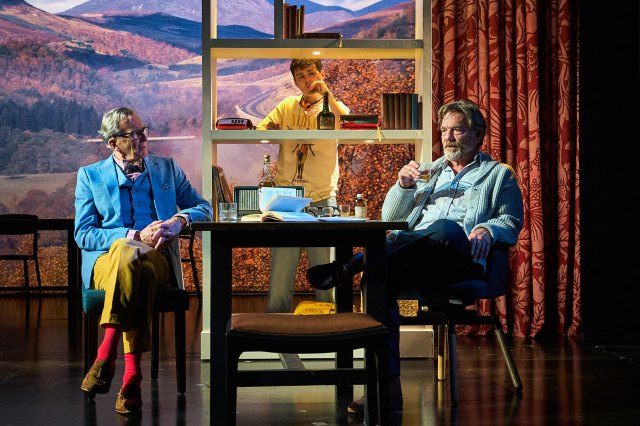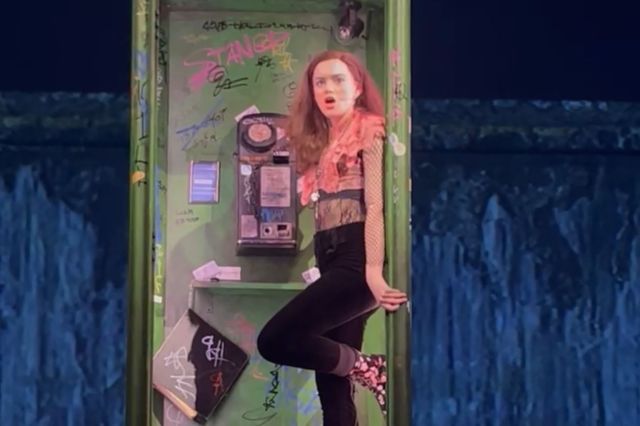Group Portrait in a Summer Landscape at Royal Lyceum Theatre, Edinburgh – review
David Greig’s production runs until 14 October

The problem with any state-of-the-nation play is that it’s really difficult to strike an effective balance between the personal and the political. On the one hand, if the play is to have a national resonance with the audience, then it has to explore effectively the political context of the events that it’s dealing with. On the other, however, it has to have a personal touch in order to avoid being remote and to create some sort of empathy with its characters.
Peter Arnott’s new play treads that fine line very carefully but, after a relatively successful first half, Group Portrait in a Summer Landscape loses its balance badly in the second. It’s set in the Perthshire countryside in the summer of 2014, just before the referendum on Scottish independence. In the well-appointed holiday home of the Rennie family, a gathering of family and friends is taking place ostensibly to commemorate the patriarch’s upcoming retirement, but long-buried issues bubble to the surface as they get ready for their celebratory dinner, and their difference of opinion on Scottish independence is only one of the many things that drives a wedge between them.
Arnott’s setup has a lot going for it. It has a strong sense of its time, and the characters’ discussion of the issues surrounding the referendum often carries the ring of the political engagement that was such a characteristic of Scotland’s political life during that summer. It also has a unity of time, place and action, the entire play unfolding in the house as the day progresses from morning until nighttime.
The problems come with the way the script deals with its “issues”, and there are a heck of a lot of those! The divisions caused by the referendum are a part of it but, on top of that, there are the unsettled problems from past love affairs, professional rivalries among Rennie’s protégés, and family issues surrounding parental approval and the aftermath of a bereavement. And that’s before we get onto the uncomfortably didactic second act, which churns through angsty philosophical stereotypes ranging from the death of God and the impossibility of good, to the future of humanity and the perils of climate change. Arnott might not have consciously been channelling Sartre and Nietzsche, but it feels like he delegated whole sections of his play to an undergraduate philosophy class.
The first half just about keeps these things in check, as the characters arrive and the seeds are planted for the denouement to come. However, when the ladlefuls of discussion topics take over, the dramatic focus goes badly awry. By the end of the play, it wasn’t at all clear what journey the characters had been on. This is also plagued by some rather clunky topic shifts in the dialogue and some odd lurches into aggression that seem to come from nowhere.
David Greig, the Lyceum Theatre’s artistic director, does what he can in his directing of the play. He manages to give each character the distinctive identity that they need in an enclosed environment like this, and Jessica Worrall’s designs meld the outdoors and the indoors effectively so that the action flows. Furthermore, many of the performances are involving, especially Benny Young as a spry older thespian who brings some much needed laconic humour to his scenes. Deirdre Davis and John Michie do a good job as the emotionally damaged central couple, and Nalini Chetty is the most sympathetic of the younger characters, an edgy Czech girlfriend brought to the party as an extra guest.
Ultimately, however, the script’s unwieldy scope means that Group Portrait can’t cope with the weight of what Arnott tries to address. Too much is left unresolved in a family portrait that needed firmer focus.
















